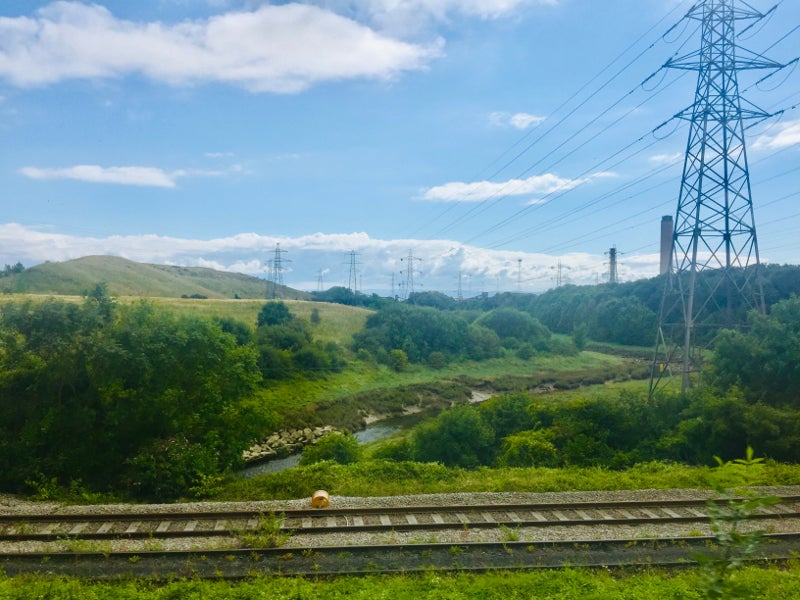The 1,560MW Aberthaw B power station is the last operating coal-fired power facility in Wales, UK. It is also the last coal plant to be owned and operated by the German utility RWE in the UK.
Capable of generating enough power for approximately 1.5 million British households, the Aberthaw B power station directly employs 170 people and has been operational since 1971.
The power station witnessed significant investment and a series of upgrades to reduce emissions in recent years and was due to remain operational at least until March 2021.
RWE in August 2019, however, announced its decision to close the Aberthaw B operations one year early by March 2020, citing unfavourable market conditions for coal-based power generation in the UK as the reason.
Background to Aberthaw B closure announcement
The European Commission (EC) of the European Union (EU) decided to take the UK Government to court in 2015, based on allegations that the pollution emissions by the Aberthaw power station were above legal limits.
The UK Government, in the same year, announced to close all coal-fired power plants in the country by 2025.
After the European Court of Justice (ECJ) ruling in 2016 that the Aberthaw coal power plant was emitting illegal levels of pollutions, RWE announced further investments on NOx emissions control and decided to reduce coal-burning at the facility by generating electricity only when needed.
The rising taxes on carbon emissions, along with the Welsh Government’s decision of not allowing new coal mining in Wales in 2018, led to RWE’s decision to shut down the facility 12 months prior to its originally scheduled closure.
The Aberthaw B closure announcement came after EDF Energy’s decision in February 2019 to close its Cottam power plant in Nottinghamshire in September 2019 and SSE’s announcement in June 2019 to shut down its Fiddler’s Ferry power station in Warrington, Cheshire, by March 2020.
After the closure of Aberthaw B, the UK will be left with four coal-fired power stations, including the West Burton A and Ratcliffe-on-Soar power plants in Nottinghamshire, the Kilroot power station in Northern Ireland, and the Drax power station in North Yorkshire.
Transfer of existing capacity market agreements
RWE reached an agreement with the UK-based energy company SSE in August 2019, to transfer the capacity market contracts from the Aberthaw B power station to SSE’s Peterhead gas-fired combined-cycle power station in Scotland for the period 2019-2020 and 2020-2021.
Aberthaw B power station details
The Aberthaw B power station is located on a former golf course site near Barry in the Vale of Glamorgan, on the coast of South Wales. The project site also housed the Aberthaw A coal-fired power station, which was in operation from 1963 to 1995.
Construction on the Aberthaw B power station was started in the late-1960s, while commercial operations began in 1971.
RWE invested approximately £45m ($78m) to replace the steam turbines of all three of its generating units at the plant between 2007 and 2008. The turbine replacement allowed each unit to generate an extra 30MW of electricity.
The Aberthaw B power station is currently equipped with three coal-fired units of 520MW capacity each.
RWE also invested approximately £250m ($490m) on emission reduction technologies at the plant. The investment was on the installation of flue gas desulphurisation (FGD) system, low NOx boiler technology, an integrated sulphur dioxide and carbon dioxide capture demonstration project to capture emissions from 3MW of the station’s capacity, and a 55MW biomass co-firing facility.
Contractors involved
Alstom was awarded the design, engineering, and installation contract for the steam turbines replacement at the Aberthaw B power station in November 2005. It also received the FGD installation contract for the power station, in consortium with AMEC, in the same month.
Saxlund was contracted to automate the biomass co-firing pilot plant at the Aberthaw B power station in 2005.
Cansolv Technologies, a subsidiary of Shell, was engaged for the integrated sulphur dioxide and carbon dioxide capture pilot plant at the Aberthaw B power station in December 2009.





